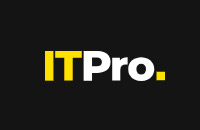Open source AI just got a major seal of approval from US regulators — but will it push developers in the right direction?

Wednesday, July 31, 2024
Indeed, while transparency offered by open systems can mitigate some problems, it doesn't solve every danger raised by AI, said Ilia Kolochenko, CEO at ImmuniWeb.
"Technically speaking, while open-source AI – however we define it – may provide a higher degree of transparency compared to proprietary AI technologies, other risks including hallucinations and inaccuracies, capacity to cause harm, infringement of intellectual property, and privacy risks are not necessarily mitigated in any manner by the fact that AI is an open source AI," he said.
Problematically, various government reports haven't defined what they mean by open source AI. While open source software has specific definitions and licenses, that's not the case for open AI, Kolochenko warned.
“First and foremost, one needs to give a crystal-clear definition of open-source AI. Does it mean that, say, the LLM will be publicly accessible? Does it mean that the model’s architecture and underlying algorithms will be publicly documented or otherwise disclosed?
“Does it mean that the model’s training data will be publicly available or at least described in a comprehensive manner? Finally, does it mean that the model is lawfully trained on data in public access? These are all separate and complex but interrelated questions, which are frequently conflated by people." Read Full Article
IT PRO: Documents for Pentagon contractors found on dark web
SiliconANGLE: Stolen internal documents from Pentagon contractor Leidos leaked online

